Mark Barrowcliffe on The Elfish Gene
The Elfish Gene is Mark Barrowcliffe’s humorous 2007 memoir on his involvement in role-playing in the British Midlands in the 1970s. For Barrowcliffe, role-playing really was Dungeons & Dragons with some Empire of the Petal Throne and forays into Traveller mixed in. The Elfish Gene is as much about teenage awkwardness and social battles as it is about D&D. Craven Games will be reviewing the book in the future, as it is an excellent book about games by a gamer. Mark Barrocliffe has written a number of other books under his own name, his MD Lachan pen name, the new Mark Alder name explained in the interview below, as well as having ghost written a number of works.
Delving into The Elfish Gene with Mark Barrowcliffe
CG: Several bits of minutiae, I see that you have a different cover in Britain that’s not the character sheet and dragon one. Why is that?
MB: It’s just the publisher’s choice. I liked the US cover very much despite the fact the character sheet was from a later version of D&D to the one I played.
CG: What’s this “bohemian ear spoon” that your character Efflic has in his inventory and was reversing your real name to use as your character’s pretty popular back then? Did Porter and Billy do this too?
MB: Not as far as I know they didn’t. Effilc Worrab sounds good, not all names do when they’re reversed. A ‘bohemian ear spoon’ is a pole arm. It took the internet to be invented for me to discover that.
CG: Did you actually use it as a weapon?
MB: Don’t think so. When D&D first started all weapons did the same 1-6 damage (as far as I recall). I was a bastard sword man for fighters once AD&D came out – a bit anachronistic for my berserkers!
CG: Have the sales been different in the UK versus the US or Canada?
MB: I honestly don’t know! I really don’t think about that, I just cash the cheques if and when they arrive!
CG: You were the oldest of your brothers, did any of your younger brothers follow you into D&D?
MB: My younger brother played as part of the 1980s craze. I had a great disdain for his approach, which seemed to be based on enjoying himself rather than realism, immersion, endless haggling over rules and the working out of deep psychic imbalances.
CG: One thing that made me blink and had me checking when the book was published was your assertion that computer games led to D&D’s “own undoing”. What did you mean by that?
MB: Computer games killed paper-based gaming. Or rather, they reduced it to about the level it was at when I was playing. D&D was no longer a mass market product in the computer age but a niche hobby.
CG: How embellished are some of the scenes in The Elfish Gene, if at all? Were you really that much of a bore and what did you leave out? I couldn’t get over your idea of chatting up the girl at the bus stop or your introduction to the game store owner.
MB: Not embellished at all. In some cases I toned down the reality because I just didn’t think people would believe it. Chigger, for instance, made my life a misery for about a year. I didn’t want to write ‘A Child Called It’. The Elfish Gene is, at heart, a humorous book.
CG: Chigger obviously has left a deep impression on you and a slight bit on me as a reader. You glossed over his attack on you in your own house. What actually happened?
MB: We had an argument over the interpretation of some rules. I won. He hit me and kicked me repeatedly until my dog bit him and my friend, who was the same age as me (4 years younger than Chigger) but bigger and a talented rugby player told him to stop. Like many bullies, he wasn’t a very happy person and, to be honest, if he’s still miserable then I’m not too bothered!
CG: At some point you’re out in your anorak in the rain in the book, but was anyone describing you and your friends as anoraks back then in the 70s? How were you treated in your pre-cloak wearing days or was being in your school’s war games club a bit more socially acceptable then?
MB: Anorak was not a term of abuse then. I think the wargames club was something other kids just didn’t understand. It also didn’t grip our imaginative lives in the same way D&D did. I never walked around imagining myself as a Napoleonic general. I did imagine myself as a D&D character and acted in a way that drew attention to that. D&D drew more notice but I don’t think it had achieved any real nerd stigma then, simply because it wasn’t understood. Our clothes and attitudes made us socially unacceptable, the game was just an aspect of that.
Barrowcliffe the Author
CG: In your interview with Slushpile in 2009, you mentioned developing a game set in the Viking age and a three book deal for fantasy novels. This is you as M.D. Lachlan? What’s been going on with that, you have Wolfsangel and Fenrir, what about the game?
MB: The game never happened because I am too busy. Yes, this is me as MD Lachlan. I have three books now – Wolfsangel, Fenrir and Lord of Slaughter, which is launched in July in the UK. I’m really proud of the books and think I’ve done a good job of writing the sort of fantasy I like to read – mythic, scary, weird.
CG: What would your game have been like? Would players have the option of being a werewolf knight?
MB: I had only thought of the magic system, which would have involved the collection of runes. The more runes you have, the more powerful you are in magic but the weaker and more insane. The werewolf, as in the book, would be linked to the fate of the main magic user. When one character had 24 runes she would effectively be Odin and the Fenris wolf would appear to fight her. Men would not be able to use magic – the Vikings thought magic very unmanly. The rules didn’t quite apply to gods, though. Odin is god of magic but he has gender-bending qualities, as do a few of the Norse gods, including Thor. Knights existed around the time of the early Vikings – the Franks had them. It might, therefore, be possible to have a werewolf knight!
CG: For anyone who reads The Elfish Gene and wants more Barrowcliffe, what should we read next?
MB: My book Lucky Dog is fun – about an addicted Poker player whose dog starts talking to him. Otherwise, I’d recommend the fantasy books. They’re not at all funny, or if they are I’ve done something wrong.
CG: Who did you have in mind for the “posh” cover for one of your fantasy novels you said you dream about from your interview with Gemma Noon?
MB: Maybe like the cover of Jonathan Strange and Mr Norrel or the original Lord of the Rings. Some sort of subdued thing. I am a hopeless artist who can hardly do stick men so it’s the sort of thing I would know when I saw it.
CG: Even now have you stayed away from fantasy humorists like Piers Anthony and Terry Pratchett?
MB: Not stayed away but neither have I avidly devoured them! I like Terry Pratchett’s work when I come across it but I’m not the sort to wait outside the bookshop all night for his latest release! I have some humour in my latest book and even Wolfsangel and Fenrir have some comic characters.
CG: George R.R. Martin’s world is fairly grim and dark. Have you visited the Songs of Fire and Ice series?
MB: Yes, I love it. Martin has an enviable way of making you care about his characters. It’s dark in a different way to Wolfsangel. In Wolfsangel most of the characters are good. Even the main villain is not evil just because she’s a nasty piece of work like, say Joffrey. The darkness in Wolfsangel comes from the struggles of the character’s against the destiny the gods have set them.
CG: What are you working on right now?
MB: A new fantasy book under a new pseudonym. It’s set in the Hundred Years War in Europe – beginning in 1337 and taking in the great battles of Crecy, Potiers and Agincourt. It’s a historical fantasy and a lot of fun. I anticipate the main character might raise a few eyebrows stateside. The provisional blurb reads ‘Meet Dowzabel. A good man. Who fights for the devil.’ He’s a revolutionary
CG: Will Joan of Arc be making an appearance?
MB: Eventually the Witch of Domrémy will appear, yes.
CG: What’s your own writing schedule like? How do you proceed with your day? Do you have a goal in words?
MB: It depends. When I ghost write I do 5000 words a day but that’s either celebrity autobiography or very straightforward thrillers. At the moment, with my new book, I’m doing 2000 words a day but that grinds to nothing occasionally when the plot gets difficult to work out. I will also edit very extensively once the book is finished. But I do write quickly.
CG: How much of being a modern author is not about writing, but marketing, self-promotion, and managing the industry? You mentioned a blurb earlier and I read about the release dates of the Sons of Hurin in the UK. I also read about shelf placement as a controllable science.
MB: Yes, my new pen name is Mark Alder, in order to get the book into the eye line right at the start of the fantasy section. A lot is about promotion, even for fairly big authors. Unfortunately I’m not very good about it!
More Elfish Barrowcliffe
CG: Did your mom or dad take notice of Billy’s departure from your life and ever suggest patching things up? She seemed really supportive when you became a pariah initially.
MB: They noticed but they didn’t try to do anything about it. I wasn’t nearly as upset as I was when I was thrown out of the D&D group. I think I didn’t realise how valuable Billy’s friendship was too me for a few years after he went. Teenage relationships are transitory and, as I had other friends, I don’t think my parents were too worried about it. Also, it cost them less in cigarettes.
CG: What were you like as a DM or GM?
MB: I never really liked being a DM, as we called them. I did enjoy the world building but not so much running the games. I think a lot of my stuff was based in a world I was interested in – Celtic or Viking, full of horrific, strange magic and I spent some time trying to get all that right – particularly as I got older. It was fun but not as much fun as being a player. Weirdly, I think the experience of writing is nearer to being a player in D&D than it is to being a DM. I’m a ‘seat of the pants’ writer – I don’t plan. So when you’re writing someone’s experience it’s more like playing a character, revealing things, being shocked or fascinated, than it is the more formal world building process the DM employs.
CG: You tried to be a real life druid of sorts, devised your own warlock class, and tried to use your own magic as a kid. Were the majority of your PCs magic users of some sort?
MB: Yes, when I was younger. As I got older I started running a berserker character (based on a character class from a fanzine) and also a vampire and anti-paladin (the Melnibonéan character class I devised).
CG: There have been increasingly more classes and races. None of them tempted you out of your D&D retirement? Were you even aware of AD&D 2nd Edition or Magic: the Gathering?
MB: Obviously I was aware of these things. I have arranged a game recently, but it’s not new stuff that has tempted me out, but the old. I’ve found a fellow Empire of the Petal Throne gamer nearby.
CG: What was your favorite D&D spell?
MB: I never met a first level magic user who didn’t choose Sleep first. Detect Magic? Yeah, right, kill 10 orcs with that! Nothing too fancy I’m afraid, probably Fireball. The third level spells were the ones that transformed magic users from being weak fight dodgers to the heavy artillery of the game. Or Fly. I’ve always wanted to be able to fly! Like I said, nothing too imaginative!
CG: I was just reading Michael Stackpole’s Pulling Report from 1990 in defense of RPGs which had come under attack as Satanic. Your own attempts at real magic in The Elfish Gene were at best comical and delusional, but they’d have made good fodder for Patricia Pulling if the book came out two decades earlier. What did you think of the scare in the 80s? Did you notice it at all?
MB: Well I wasn’t a Satanist. I was into Crowley’s Golden Dawn magic, much of which involves the attempt to summon angels, so it could be seen as just an esoteric branch of Christianity. I thought the scare in the 1980s was spread by morons, firstly because D&D led no one to Satanism, second because, if it did, who cares? As I noted in the book, an interest in the occult is much less dangerous than horse riding or motocross. And it gets you out of the house, at least. Most of the witches I’ve ever met are much more straightforward and pleasant people than the sinister evangelical tub thumpers who get so hot under the collar about them. I noticed the scare in retrospect; it just didn’t take hold in England. The UK is not a religious society compared to the US – few western societies are. Over here, about 7 per cent of people consider themselves practising Christians. So there just isn’t the manure for the seeds of such ignorance to grow in.
Mark Barrowcliffe’s Treasure Chest
American cover copyright Soho Press, used with permission. UK covers copyright Macmillan, used with permission.
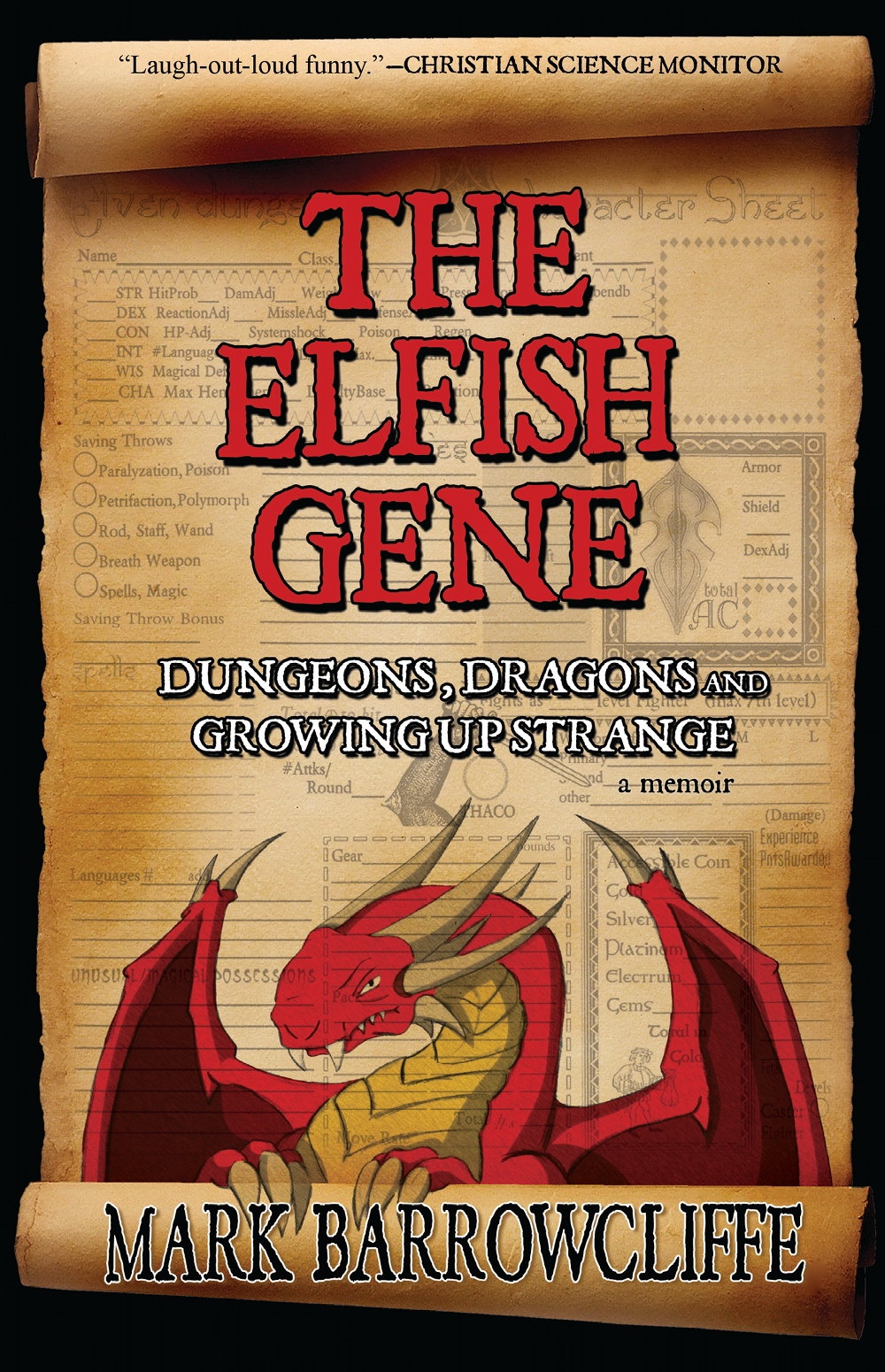
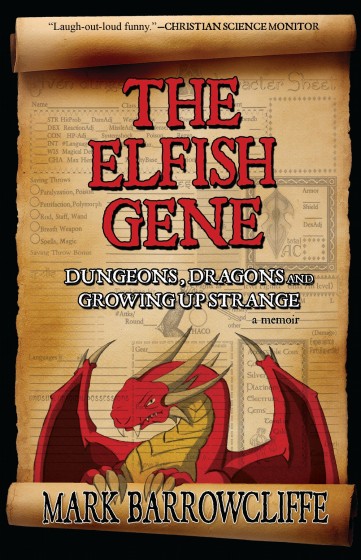
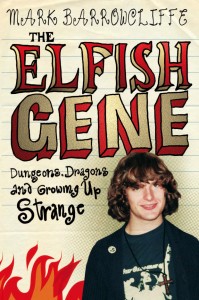
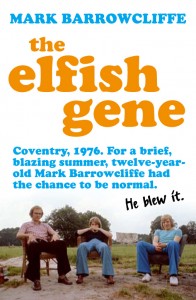
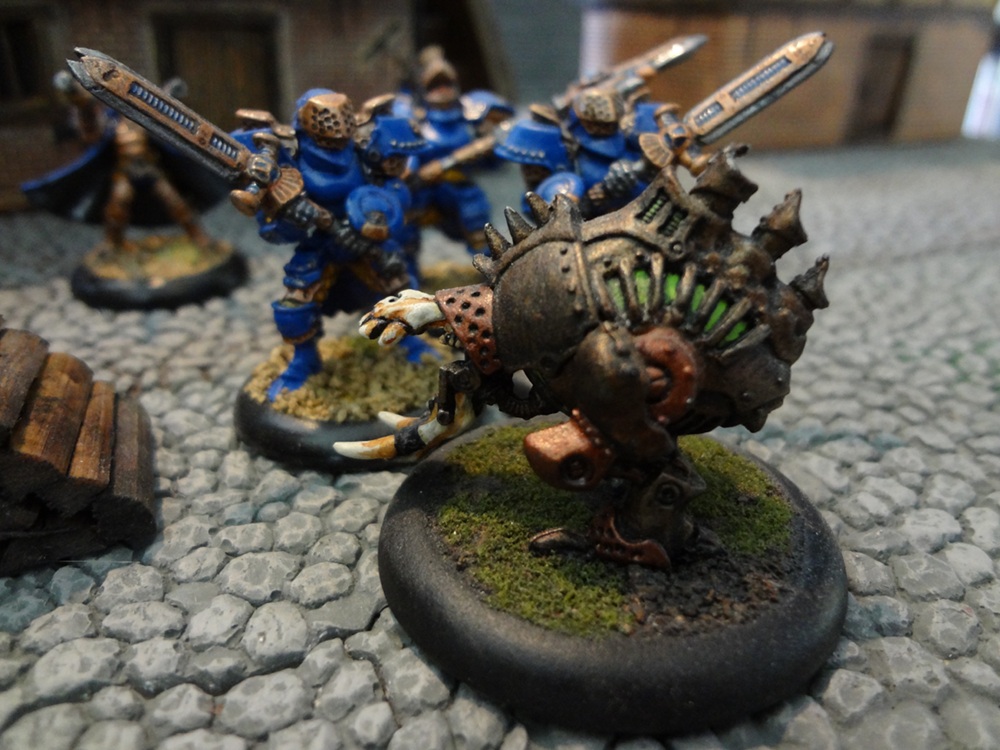
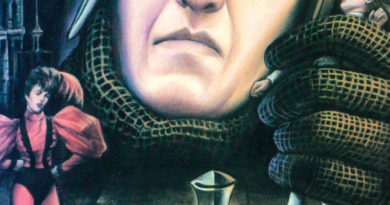
Pingback:The Elfish Gene: Dungeons, Dragons, and Growing Up Strange | Craven Games: In-Depth Tabletop Games Coverage